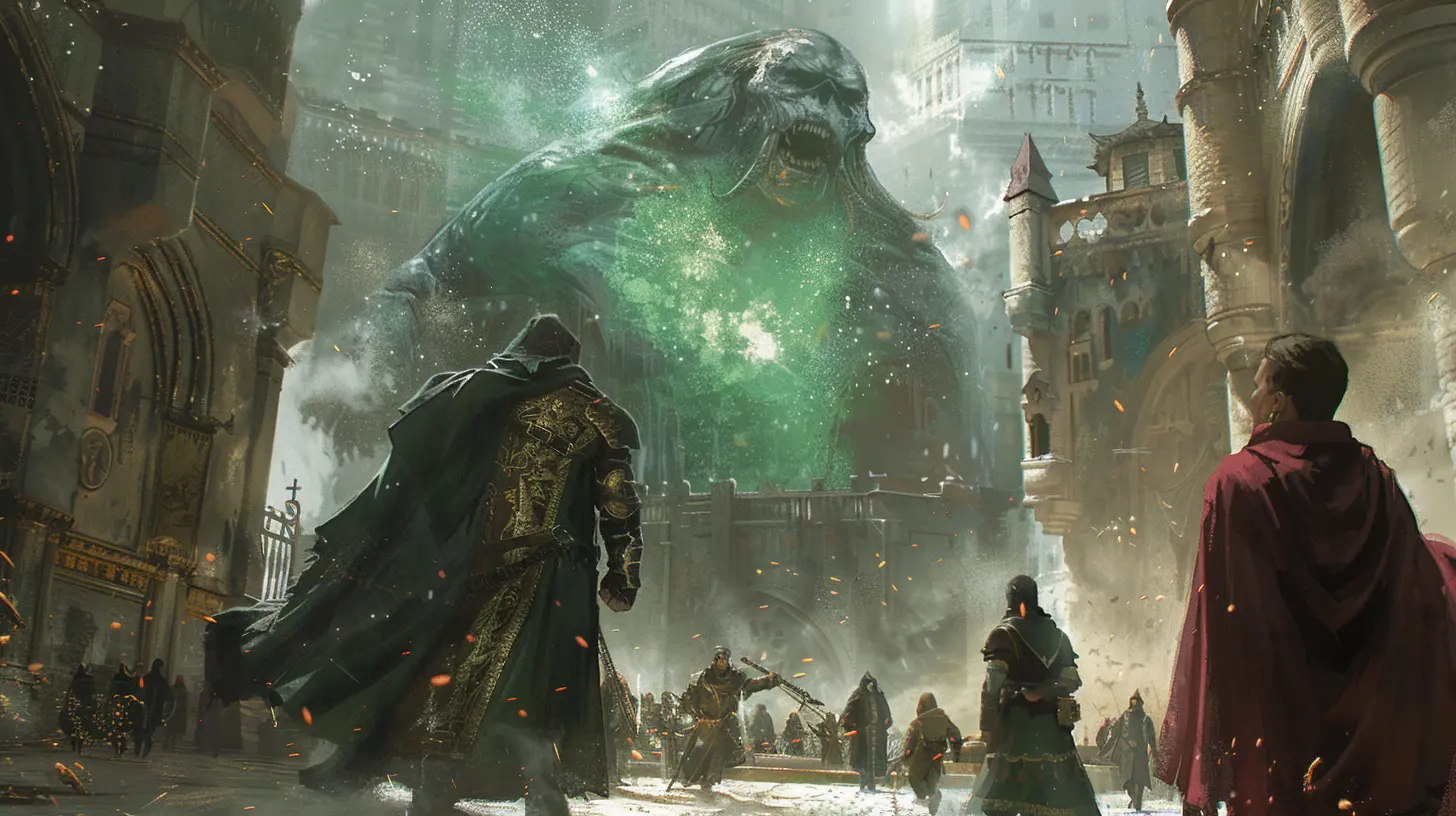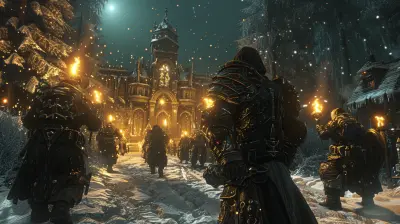The Role of Storytelling in Season Pass Expansions
13 November 2025
You’ve probably heard the phrase “it’s all about the journey, not the destination”—right? Well, that couldn’t be more accurate when it comes to video games, especially in the case of season pass expansions. As gamers, we don’t just crave new levels, weapons, or shiny loot. We want to be part of a world that tells a compelling story, one that makes us feel something. And that’s exactly where storytelling comes in.
Gaming is no longer just about grinding XP or completing side quests. Today, it’s about immersion—and nothing pulls players into a virtual world quite like a well-crafted narrative.
So, let’s dive straight into the heart of the matter and unpack why storytelling is the secret sauce that makes season pass expansions more than just glorified DLC (downloadable content).
What Is a Season Pass, Anyway?
First, a quick refresher. A season pass is essentially a bundle of future content for a game—usually delivered in chunks over several months following the base game’s release. Think of it like a subscription, but for game expansions.Sounds simple, right? But here’s where things get juicy.
The best season passes aren’t just collections of missions or cosmetic upgrades. They extend the world, deepen the lore, and give players a reason to keep coming back. And great storytelling is often the glue holding it all together.
Why Storytelling Matters in Modern Gaming
Let’s be real for a second. Gameplay mechanics can only do so much. Sure, it’s fun to shoot stuff, pilot spaceships, or slay dragons, but without a purpose behind your actions, it all starts to feel... hollow.That’s where storytelling steps in.
Whether it's uncovering the secrets of an ancient alien civilization or avenging a fallen comrade, story gives context to gameplay. It answers the "why" behind every quest, battle, or decision. And in the case of season pass expansions, it transforms what could be a throwaway content dump into a living, breathing extension of the game’s universe.
You’re not just playing a game—you’re part of a saga.
Expanding the Lore: More Than Just Filler Content
One of the biggest storytelling strengths of season passes is the opportunity to expand the lore in meaningful ways. Developers can use these expansions to flesh out unanswered questions, dive into backstories, or introduce new factions and characters.Take a game like The Witcher 3. Its season expansions, Hearts of Stone and Blood and Wine, weren’t just side gigs. They delivered full-bodied narratives that could easily stand beside the main story.
That’s the power of narrative-driven expansions. They don’t just add hours of gameplay—they enrich the lore in a way that feels essential.
Emotional Investment Keeps Players Hooked
Let’s talk emotions for a sec.When a game makes us care—about a character, a kingdom, or a cause—we’re more likely to stay invested. The best season pass expansions capitalize on this emotional connection by continuing or evolving the core story.
Consider Destiny 2. The game's seasonal storytelling has become a masterclass in building anticipation and emotional payoff. By weaving continuing plot threads through each season, players are glued to their seats (and screens), hungry for the next twist.
So, storytelling in season passes isn’t just fluff. It’s a powerful tool that keeps players emotionally and psychologically tied to the world.
Storytelling Drives Community Engagement
Let’s not forget a huge piece of the puzzle: the gaming community.When a narrative truly resonates with players, it sparks discussion. Forums light up with theories, fan art explodes on Twitter, and Reddit threads spiral into heated debates over plot twists.
That kind of organic hype? Priceless.
Story-driven season passes tap into this phenomenon by giving players something to talk about—characters to analyze, plot twists to unpack, and cliffhangers to obsess over. And from a marketing standpoint, nothing beats free word-of-mouth advertising driven by passionate fans.
Episodic Storytelling: The Netflix-ization of Gaming
If you’ve binge-watched a Netflix series until 3 a.m., then you already understand how episodic storytelling hooks you.Season pass expansions use a similar model. By releasing story updates in seasonal chunks, developers keep the narrative pulse alive over a longer period. It's a drip-feed of dopamine that keeps us coming back for more.
Games like Fortnite and Apex Legends are masters at this. They spin out small but impactful story beats across a season, creating a shared sense of anticipation across the player base.
Each season feels like a new episode in a larger cinematic universe—and you don’t want to miss a single frame.
The Balance of Gameplay and Narrative
Now, here’s the tricky part: balance.Too much story without enough engaging gameplay? Players get bored. Too much action with no story context? It feels shallow.
The best season pass expansions strike a perfect balance—intertwining tight gameplay loops with rich storytelling moments. This allows players to feel they’re both being challenged mechanically and rewarded narratively.
It’s like running a marathon and getting a standing ovation at the finish line. You worked for it, and the story makes that achievement feel meaningful.
Nonlinear Storytelling and Player Choice
Modern players aren't content with being passive participants. We want the ability to shape the outcome, to leave our mark on the game world.Season pass expansions are increasingly embracing nonlinear storytelling, allowing choices from previous updates—or the base game—to influence how events unfold.
Games like Assassin’s Creed Valhalla and Cyberpunk 2077 are moving in this direction, giving players divergent paths to explore. These choices don’t just impact side details—they can shift the entire direction of a storyline.
And let’s be honest: when a game remembers your choices, it feels a whole lot more personal.
A Revenue Model That Respects The Narrative
Let’s get a bit practical here.Season passes are a business model—no doubt. They’re designed to keep the money flowing long after the base game drops. But when done right, storytelling can make that model feel worth it.
Instead of buying a season pass just for a handful of new skins or weapons, players are investing in narrative continuity. They know they’re getting more of the story they love, with each season building organically on the last.
That’s not just good business—it’s respectful game design.
Telling Stories Across Mediums
One cool trend you might’ve noticed: games aren’t just telling stories within the game anymore.Season passes often come with tie-in comics, short films, or web episodes that expand the story world even further. This kind of transmedia storytelling adds layers and depth, drawing in fans who love to engage with the universe on multiple levels.
It’s like the MCU—but for your favorite game.
The Risks: When Storytelling Falls Flat
Now, it’s not all sunshine and narrative rainbows.Some season pass expansions fall into the trap of lazy storytelling. Maybe the plot goes nowhere, maybe it rehashes old ideas, or worse—maybe it contradicts the game’s established lore.
This kind of storytelling can actually harm a franchise. Players feel let down, and the emotional investment you worked so hard to build? Gone in a flash.
So, while storytelling is a powerful tool, developers need to wield it carefully. It must feel authentic, coherent, and impactful—not just tacked on.
Final Thoughts: Why Storytelling Is the Future of Season Passes
At the end of the day, season passes aren’t just about prolonging a game’s life—they’re about deepening it.As gamers grow more sophisticated and narrative-driven titles rise in popularity, storytelling will only become more central to how expansions are crafted.
So the next time you’re debating whether to drop cash on a season pass, ask yourself: “Am I just buying more content—or am I investing in a story I want to be a part of?”
If it’s the latter, then chances are it’s worth every penny.
Key Takeaways
- Storytelling gives context and emotional depth to gameplay.- Season passes excel when they expand lore, not just content.
- Emotional investment leads to long-term player retention.
- Good storytelling drives community buzz and speculation.
- Episodic content keeps the momentum alive throughout the year.
- Balance between story and gameplay keeps experiences fresh and rewarding.
- Nonlinear storytelling enhances player agency and personalization.
- A solid narrative justifies the season pass as a worthy purchase.
- When done poorly, storytelling missteps can damage trust and reputation.
all images in this post were generated using AI tools
Category:
Season PassesAuthor:

Francesca West
Discussion
rate this article
2 comments
Owen McQuaid
Storytelling in season pass expansions enriches gameplay by deepening player connection and investment, transforming mere content into a narrative journey that enhances the overall experience and emotional impact.
December 7, 2025 at 5:46 AM

Francesca West
Thank you for your insightful comment! I completely agree that storytelling is essential in season pass expansions, as it fosters deeper player engagement and turns gameplay into a meaningful narrative experience.
Holly Foster
Engaging narratives enhance value.
November 15, 2025 at 5:45 PM

Francesca West
Absolutely! Engaging narratives create deeper connections and enrich the overall experience, making season pass expansions more valuable to players.


